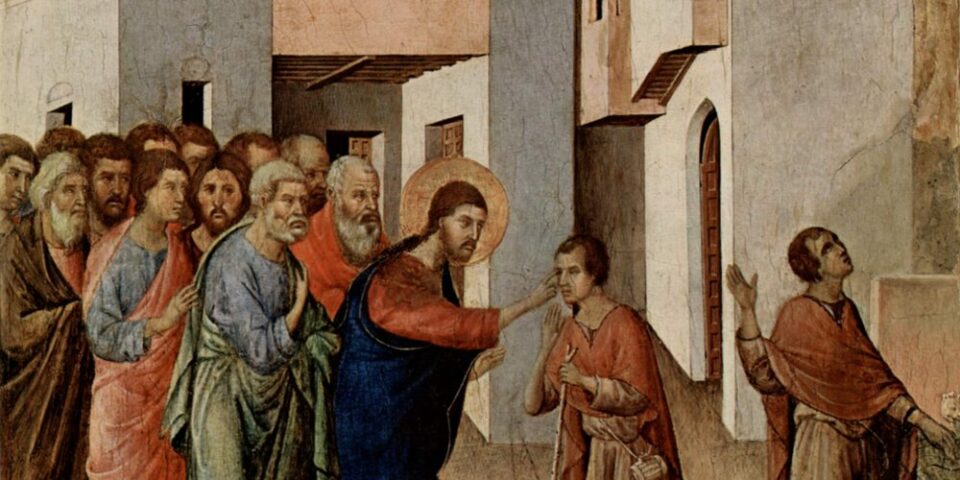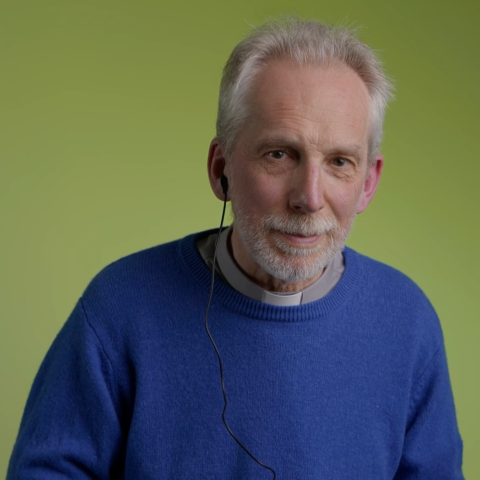This is the question that Jesus asked the blind beggar, Bartimaeus, when his shouting from the roadside, ‘Son of David, have mercy on me,’ caused Jesus to stop and ask for Bartimaeus to be brought to him.
In some ways it is a strange question to ask. After all, Bartimaeus is blind. What else could he want other than to be able to see.
Well, this seemingly innocuous question, with what many would assume is an obvious answer, opens for us some hidden depths to Jesus’ miracles of healing and what they might mean for us today. And that is that there is far more going on in the miracles of healing than just the cure of people’s sickness and disabilities. If it was only cure, then Jesus’ question to Bartimaeus would be truly ridiculous. But, in the context of the wider healing that people experience through Jesus’ touch and words, the question becomes deeply significant.
Because, at the heart of the healing miracles is in fact liberation. The liberation of each person who is healed from a place of social isolation and marginalisation to take a new place both in contemporary Jewish society, and in the new kingdom community that Jesus is bringing into being. But this is not just liberation for the individual. It also offers potential liberation for wider society as well. It offers the crowd a new vision of what an inclusive, compassionate society could and should be.
Looking at Jesus’ healing miracles as acts of liberation or radical inclusion rather than acts of cure, has the potential to reframe our understanding of the church’s ministry of healing today. Just as in Jesus’ time, our society has many sick and disabled people who are forced to live on the margins. Our profit driven, achievement measured society pushes them to the edges where they are more and more viewed as a problem to contain or deal with, a drain on the welfare state, people whose presence is tolerated but not really appreciated or valued. Although many disabled people are housed and receive a small amount to live on, there are still many disabled people sitting by society’s roadside begging to be included and longing to be given many of the opportunities that nondisabled people enjoy.
A 2020 report from the RNIB found that although employment amongst disabled people generally is only a pitiful 51%, for blind and partially sighted people it is only 27%. Blind and partially sighted people reported that job application processes were not accessible and employers were unwilling to make the adaptions and provide what they would need to function well in the workplace. They found that their visual impairment was seen as a problem that negated the skills and creativity that they could bring to a role.
In Jesus’ time, the only pathway to liberation for Bartimaeus and the other sick and disabled people that Jesus encountered was cure. In this ancient society there was no way that a blind man could function and earn a living on equal terms with his sighted neighbours. Today things are different though, and some have pondered on what Bartimaeus might say in response to Jesus’ question – ‘What do you want me to do for you? – today. From my own experience as a blind person, it would not necessarily be, ‘I want to see.’ But maybe more like: ‘Give me the access technology I need and an employer willing to make the adjustments I need. Give me a guide dog or support worker so I can get around and give me the chance to earn my own living so I can enjoy all the opportunities that others enjoy!
We often talk about a desire for our church communities to be communities of healing and reconciliation, but we don’t often talk about them as being communities of liberation. Communities in which people can be liberated from the many ways in which society confines and stifles, labels and marginalises them. Jesus came to bring a community of liberation into being, and this is what is at the heart of the miracles of healing. The challenge to the church is to really reflect on what we are expecting as we offer a ministry of healing. What do we think we are doing as we pray and lay hands on sick and disabled people? Is this something that is in God’s hands, and God’s hands only? Or, as we pray for the blind to see, the Deaf to hear, the lame to walk, the troubled to be set free, is God saying to us: ‘their true healing, their liberation is in your hands. It is in how you welcome, include, value, appreciate and release people to fully belong and participate in the kingdom community. You already have the power to bring about that liberation. And that is the real meaning of healing.
The 360 Accessibility Audit Tool has at its heart a pathway for the liberation of disabled and neurodivergent people to be heard and take their full and rightful place in your church community. Creating space for voices to be heard and stories to be told. Forming an access or disability working group. Appointing an access or disability champion as a permanent member of your PCC. And giving power to disabled and neurodivergent people to drive forward your strategy and action towards becoming a fully accessible and inclusive community in which all disabled and neurodivergent people are liberated to fully belong and participate in every aspect of the life and ministry of the church. Or in other words, to become a community in which Jesus liberatory healing becomes common place for all.

